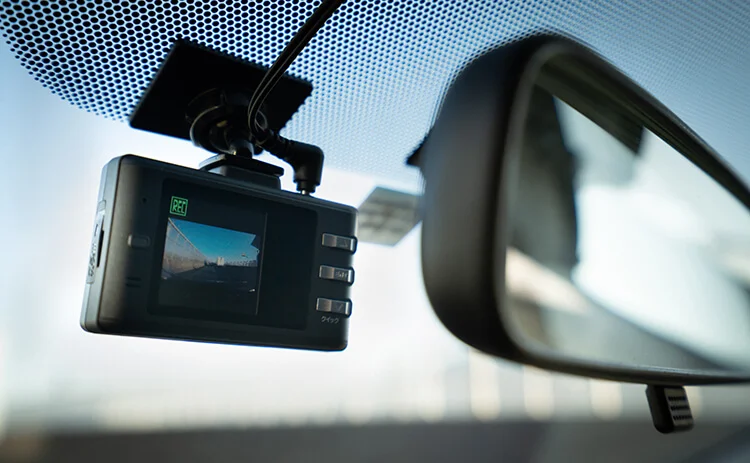Dash cams, small windshield-mounted cameras, have become essential for many drivers. They offer peace of mind, capture traffic incidents, and can act as valuable evidence in case of accidents or road rage situations. However, before installing a dash cam in Illinois, it’s vital to understand the state’s laws and regulations to ensure your footage is legally obtained and can be used as evidence.
Dash cams are growing in popularity for good reason. These devices can provide:
- Protection against fraudulent claims: Dashcam footage offers an unbiased record of an accident, helping determine fault and preventing false allegations.
- Evidence for insurance purposes: Footage can simplify insurance claims and speed up the resolution process.
- Driving behavior monitoring: Dash cams can be valuable tools for parents monitoring teen drivers or fleets tracking employee driving habits.
- Road trip memories: They can capture scenic drives and unexpected moments.
Dash Cam Legality in Illinois
- General Permissibility: Illinois has no specific laws prohibiting the use of dash cams in private vehicles. Therefore, you are generally allowed to install and use one.
- Placement Restrictions: To avoid obstructing your view, dash cams should be mounted in the lower portion of your windshield on the driver’s side. There may also be size limitations (often around 5 square inches) to ensure they don’t pose a significant obstruction.
- Audio Recording Regulations: The central legal consideration in Illinois is audio recording. Illinois is a “two-party consent” state, meaning that all parties involved in a conversation must consent to being recorded. If your dash cam captures audio, everyone in your vehicle must be aware of the recording and agree to it.
Using Dash Cam Footage as Evidence
- Admissibility in Court: Footage from dash cams can be incredibly helpful in court cases, but its admissibility depends on whether you obtained it legally. Footage must be gathered in compliance with Illinois laws and the established rules of evidence.
- Importance of following legal guidelines: If you fail to obtain proper consent for audio recordings, your dash cam footage could be deemed inadmissible in court, weakening your case.
Privacy Considerations
- Recording Others Without Consent: It’s vital to understand that you generally cannot record people without their consent, especially in private settings. If a situation arises inside or around your vehicle where there is a reasonable expectation of privacy, be sure to turn off your dash cam’s audio recording capability or stop the recording entirely.
- Public vs. Private Spaces: Recording in public spaces is generally less restricted, while recording inside someone else’s vehicle or property often requires their express consent.
- Sharing Footage Online: Use caution when sharing dash cam footage on social media or other online platforms. Avoid violating others’ privacy, especially if they are identifiable in the footage, as this could have legal ramifications.
Additional Dash Cam Laws in Illinois
- Potential Restrictions on Recording Police Activity: Illinois has laws that may make it illegal to record on-duty police officers without their consent under certain circumstances. Be aware of these potential restrictions.
FAQs
- Can I use a dash cam with Uber or Lyft? Notify your rideshare company about installing a dash cam and follow their specific guidelines.
- What happens if I record without consent? You might face legal consequences, and the footage could be inadmissible in court.
Conclusion
Dash cams can be valuable tools, but responsible use is key. Understanding Illinois law ensures you get maximum benefits while respecting the law and others’ privacy. Always obtain consent for audio recordings and use common sense when sharing footage.
Sources
- Illinois Dash Cam Laws | Chicago Personal Injury Lawyers: https://www.curcio-law.com/blog/illinois-dash-cam-laws/
- Illinois Dashboard Camera Laws: https://illinoiscarlaws.com/dashboard-camera/
- The 2024 Guide To Dash Cam Laws in Every US State – Expert Market: https://www.expertmarket.com/dash-cams/dash-cam-laws-by-state
- Using Dash Cam Evidence in Road Rage Cases: https://www.horwitzlaw.com/blog/using-dash-cam-evidence-in-road-rage-cases/



